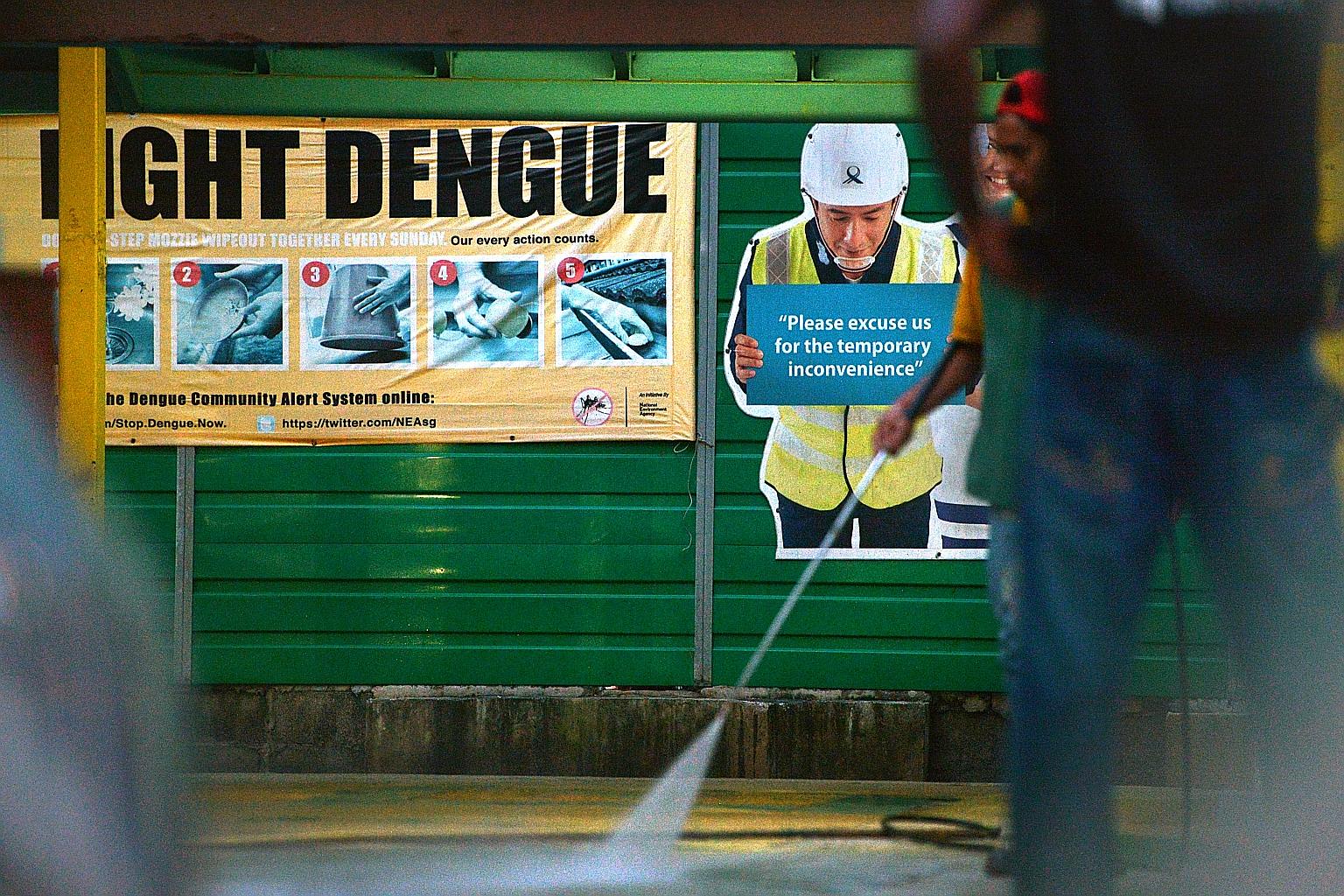Dengue prevention steps can keep Zika virus at bay
But everyone should play his part to stop Aedes mosquito from breeding, says Masagos
Sign up now: Get ST's newsletters delivered to your inbox

Minister for the Environment and Water Resources Masagos Zulkifli warned that the number of dengue cases is expected to be high this year, and could spike earlier than usual.
ST PHOTO: KUA CHEE SIONG
Dengue prevention measures can be effective in keeping the Zika virus from spreading, as it is transmitted by the same type of mosquito.
But everyone should play his part in making sure the Aedes mosquito has no chance to breed, said Minister for the Environment and Water Resources Masagos Zulkifli in Parliament yesterday.
Mr Masagos made that point in response to a question by Mr Gan Thiam Poh (Ang Mo Kio GRC) on what the ministry was doing to keep the Zika virus at bay.
The Zika virus has been spreading across the Americas at an alarming rate, causing babies to be born with underdeveloped brains.
Yesterday, Mr Masagos gave the assurance that even if a single Zika case were to be detected in Singapore, the National Environment Agency (NEA) would step up its vector control activities around the carrier, the area he lives in, as well as his workplace.
"But beyond that, I think it is important for all of us to play our part... to understand that, in just a week, the egg can hatch into an adult mosquito and within three weeks, the same mosquito - if it is female - will start laying 300 eggs and then that is how it starts to spread," said Mr Masagos.
The Ministry of Health and the NEA also issued a statement yesterday about how they plan to deal with the Zika virus.
All confirmed carriers will be admitted to a public hospital until they recover and are tested negative for the virus.
"Admitting them into a single room at the hospital will also minimise their risk of being bitten by mosquitoes while they are carrying the virus, which may result in further local transmission," said the statement.
The Health Ministry will also seek out potential carriers in high-risk areas who are related to those who have tested positive.
Since infected persons may not exhibit symptoms, the authorities are not ruling out undetected cases and have told doctors to look out for potential carriers.
The number of dengue cases is expected to be high this year, and could spike earlier than usual, warned Mr Masagos.
From last November to last month, the NEA conducted more than 193,000 inspections and removed more than 4,000 breeding habitats, the majority of which were found in homes, he said.
Mr Zaqy Mohamad (Chua Chu Kang GRC) also asked about the proportion of dengue breeding in homes compared with external areas, given that there seems to be a perception among residents that most breeding grounds are outside residential areas.
To that, Mr Masagos said the number of residential premises where breeding grounds were discovered was "actually large", although on record, the number of checks carried out on residential premises was comparable to that at construction sites.
But the likelihood of a recalcitrant household re-offending "almost disappears" after it is given a warning and then a penalty, said Mr Masagos.
More than 1,000 households in dengue clusters were fined last year, said Mr Masagos, who added that the current penalties have been effective in keeping re-offending rates low.
As for construction sites, more than 900 contractors were ordered to attend court, and over 100 were prosecuted for repeat offences.
Nonetheless, his ministry will introduce stiffer penalties if necessary, he said.


